|
Books Should Be Free Loyal Books Free Public Domain Audiobooks & eBook Downloads |
|
|
Books Should Be Free Loyal Books Free Public Domain Audiobooks & eBook Downloads |
|
Books of Memoirs |
|---|
|
Book type:
Sort by:
View by:
|
By: P. T. Barnum (1810-1891) | |
|---|---|
 The Humbugs of the World
The Humbugs of the World
P. T. Barnum exposes some of the chief humbugs of the world with his usual entertaining style. He looks at medicine and quacks, ghosts, witchcraft, religious humbugs, money manias, adventurers, personal reminiscences, and much more. | |
By: Richard Burton Deane (1848-1940) | |
|---|---|
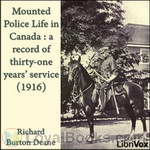 Mounted Police Life in Canada : a record of thirty-one years' service (1916)
Mounted Police Life in Canada : a record of thirty-one years' service (1916)
Learn more about the famous and respected Royal Canadian Mounted Police. This book is the personal recollections of one ‘Mountie’; his life, experiences and trials as an officer in a new frontier – The Canadian Northwest. | |
By: Anna Harriette Leonowens | |
|---|---|
 The English Governess at the Siamese Court
The English Governess at the Siamese Court
1862 Anna Leonowens accepted an offer made by the Siamese consul in Singapore, Tan Kim Ching, to teach the wives and children of Mongkut, king of Siam. The king wished to give his 39 wives and concubines and 82 children a modern Western education on scientific secular lines, which earlier missionaries’ wives had not provided. Leonowens sent her daughter Avis to school in England, and took her son Louis with her to Bangkok. She succeeded Dan Beach Bradley, an American missionary, as teacher to the Siamese court... | |
By: Eliza P. Donner Houghton (1843-1922) | |
|---|---|
 The Expedition of the Donner Party and Its Tragic Fate
The Expedition of the Donner Party and Its Tragic Fate
The Donner Party was a group of California-bound American settlers caught up in the “westering fever” of the 1840s. After becoming snowbound in the Sierra Nevada in the winter of 1846–1847, some of the emigrants resorted to cannibalism. Although this aspect of the tragedy has become synonymous with the Donner Party in the popular imagination, it actually was a minor part of the episode. The author was about 4 at the time. The first part of the book accounts the tragic journey and rescue attempts; the last half are reminiscences of the child orphan, passed from family to family while growing up. | |
By: Edmund Gosse (1849-1928) | |
|---|---|
 Father and Son
Father and Son
Father and Son (1907) is a memoir by poet and critic Edmund Gosse, which he subtitled “a study of two temperaments.” The book describes Edmund’s early years in an exceptionally devout Plymouth Brethren home. His mother, who dies early and painfully of breast cancer, is a writer of Christian tracts. His father, Philip Henry Gosse, is an influential, though largely self-taught, invertebrate zoologist and student of marine biology who, after his wife’s death, takes Edmund to live in Devon... | |
By: Thornton Chase | |
|---|---|
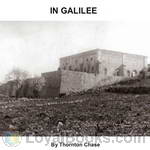 In Galilee
In Galilee
Thornton Chase (1847 – 1912) is commonly recognized as the first convert to the Bahá’í Faith of Occidental background. During his life he organized many Bahá’í activities in Chicago and Los Angeles and was considered a prominent Bahá’í. In 1907 Chase was able to go on pilgrimage. Though Chase was able to be with `Abdu’l Bahá in Akka for only three days, the experience transformed him. `Abdu’l Bahá, highly impressed by Chase’s qualities, conferred on him the title Thábit, “steadfast... | |
By: Chalkley J. Hambleton | |
|---|---|
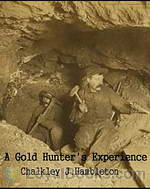 A Gold Hunter's Experience
A Gold Hunter's Experience
“Early in the summer of 1860, I had an attack of gold fever. In Chicago, the conditions for such a malady were all favorable. Since the panic of 1857 there had been three years of general depression, money was scarce, there was little activity in business, the outlook was discouraging, and I, like hundreds of others, felt blue.” Thus Chalkley J. Hambleton begins his pithy and engrossing tale of participation in the Pike’s Peak gold rush. Four men in partnership hauled 24 tons of mining equipment by ox cart across the Great Plains from St... | |
By: Ferdinand Ossendowski (1876-1945) | |
|---|---|
 Beasts, Men and Gods
Beasts, Men and Gods
“Beasts, Men and Gods” is an account of an epic journey, filled with perils and narrow escapes, in the mold of “The Lord of the Rings.”The difference is: it’s all true.Ferdinand Ossendowski was a Pole who found himself in Siberia and on the losing side during the Bolshevik Revolution. To escape being rounded up and shot, he set out with a friend to reach the Pacific, there to take ship back to Europe. During his journey he fell in with dozens of other military men who shared the same objective… but nearly every one of them perished on the way... | |
By: Henry Ford | |
|---|---|
 My Life and Work
My Life and Work
Henry Ford profiles the events that shaped his personal philosophy, and the challenges he overcame on the road to founding the Ford Motor Company. Throughout his memoir, he stresses the importance of tangible service and physical production over relative value as judged by profits and money. He measures the worth of a business or government by the service it provides to all, not the profits in dollars it accumulates. He also makes the point that only service can provide for human needs, as opposed to laws or rules which can only prohibit specific actions and do not provide for the necessaries of life... | |
By: Mary Rowlandson (c.1637-1711) | |
|---|---|
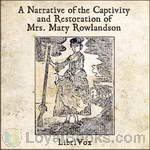 A Narrative of the Captivity and Restoration of Mrs. Mary Rowlandson
A Narrative of the Captivity and Restoration of Mrs. Mary Rowlandson
This is the story of Mary Rowlandson’s capture by American Indians in 1675. It is a blunt, frightening, and detailed work with several moments of off-color humor. Mary, the wife of a minister, was captured by Natives during King Philips War while living in a Lancaster town, most of which was decimated, and the people murdered. See through her eyes, which depict Indians as the instruments of Satan. Her accounts were a best-seller of the era, and a seminal work, being one of the first captivity narratives ever published by a woman... | |
By: Frances M. A. Roe | |
|---|---|
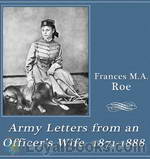 Army Letters from an Officer's Wife, 1871-1888
Army Letters from an Officer's Wife, 1871-1888
"There appeared from the bushes in front of me, and right in the path, two immense gray wolves . . . Rollo saw them and stopped instantly, giving deep sighs, preparing to snort, I knew . . . To give myself courage, I talked to the horse, slowly turning him around . . . when out of the bushes in front of us, there came a third wolf! The situation was not pleasant and without stopping to think, I said ‘Rollo, we must run him down - now do your best’ and taking a firm hold of the bridle, and bracing myself in the saddle, I struck the horse with my whip and gave an awful scream... | |
By: Henry W. Lucy (1842-1924) | |
|---|---|
 East by West: a Journey in the Recess
East by West: a Journey in the Recess
East by West: a Journey in the Recess is an account of British journalist Henry Lucy's travels across America and on to the Far East during the parliamentary recess in 1883. Lucy was one of the most influential journalists of his day and, as "Toby M.P.", a noted humorist in Punch magazine. His acute powers of observation and light touch make this a most engaging book. It is a fascinating insight into the Englishman's travels abroad within two decades of the American Civil War and the end of Japanese isolationism... | |
By: Sarah Elizabeth Harper Monmouth (1829-1887) | |
|---|---|
 Living on Half a Dime a Day
Living on Half a Dime a Day
How to live on 5 cents a day! How to survive financial ruin without losing your house! How to keep to a bare bones budget and still have money left over to buy books! Tough questions! They were tough questions even in the 1870’s, when Sarah Elizabeth Harper Monmouth penned her quirky memoir, the subtitle of which was “How a Lady, Having Lost a Sufficient Income from Government Bonds by Misplaced Confidence, Reduced to a Little Homestead Whose Entire Income is But .00 per Annum, Resolved to Hold It, Incurring no Debts and Live Within it... | |
By: William Westgarth (1815-1889) | |
|---|---|
 Personal Recollections of Early Melbourne and Victoria
Personal Recollections of Early Melbourne and Victoria
Son of John Westgarth, surveyor-general of customs for Scotland, was born at Edinburgh, in June 1815. He was educated at the high schools at Leith and Edinburgh, and at Dr Bruce’s school at Newcastle-on-Tyne. He then entered the office of G. Young and Company of Leith, who were engaged in the Australian trade, and realizing the possibilities of the new land, decided to emigrate to Australia. He arrived in Melbourne, then a town of three or four thousand inhabitants, in December 1840.When the new colony was constituted Westgarth headed the poll for Melbourne at the election for the legislative council... | |
By: Captain Rees Howell Gronow (1794-1865) | |
|---|---|
 Reminiscences of Captain Gronow
Reminiscences of Captain Gronow
A collection of memoirs about the Peninsular War, the Battle of Waterloo, and society and personalities of Regency London and 19th century Paris, by a sometime Grenadier Guards officer, unsuccessful parliamentarian, and dandy. Gronow displays social attitudes of the day which would now be regarded as unacceptable, but is a clever raconteur who brings to life both the horrors of war and the gaiety of high society. | |
By: Charles Dudley Warner (1829-1900) | |
|---|---|
 Being a Boy
Being a Boy
Warner's thoughtful and often humorous memoir of his life as a young farm-boy in Charlemont, Massachusetts. (Introduction by Mark Penfold) | |
By: Dame Shirley (d.1906) | |
|---|---|
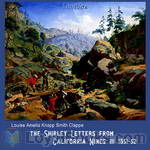 The Shirley Letters from California Mines in 1851-52
The Shirley Letters from California Mines in 1851-52
Louise Amelia Knapp Smith Clappe moved to California from Massachusetts during the Gold Rush of the mid-1800’s. During her travels, Louise was offered the opportunity to write for The Herald about her travel adventures. It was at this point that Louise chose the name “Shirley” as her pen name. Dame Shirley wrote a series of 23 letters to her sister Mary Jane (also known as Molly) in Massachusetts in 1851 and 1852. The “Shirley Letters”, as the collected whole later became known, gave true accounts of life in two gold mining camps on the Feather River in the 1850s... | |
By: William Bradford (1590-1657) | |
|---|---|
 Bradford's History of the Plymouth Settlement
Bradford's History of the Plymouth Settlement
The journal of William Bradford, who served five terms as governor of the Plymouth colony, is an indispensable document of the events of early American history. His eyewitness account includes the stories of the Pilgrims’ sojourn in the Netherlands, the voyage of the Mayflower, the hardships of the New World, relations with the Indians, and the colony’s growth from an endangered enterprise to a thriving city. This edition of Bradford’s Of Plimoth Plantation presents the text in language made more accessible to the modern reader | |
By: Horatio Alger, Jr. (1832-1899) | |
|---|---|
 Helping Himself, or Grant Thornton's Ambition
Helping Himself, or Grant Thornton's Ambition
Helping Himself, or Grant Thornton's Ambition deals with the grit and determination of Grant, a 15 year old farmer's boy whose father is dead and in order to pay his minister father's debts, and to help his mother deal with their abject poverty young Grant postpones his college education to take a job as a Wall Street broker's clerk. The first step is to deal with the avaricious and greedy man who is keeping them from obtaining the meager amount due them and which will at least allow them to eat... | |
By: Ulysses S. Grant (1822-1885) | |
|---|---|
 Personal Memoirs of U. S. Grant
Personal Memoirs of U. S. Grant
"In preparing these volumes for the public, I have entered upon the task with the sincere desire to avoid doing injustice to any one, whether on the National or Confederate side, other than the unavoidable injustice of not making mention often where special mention is due. There must be many errors of omission in this work, because the subject is too large to be treated of in two volumes in such way as to do justice to all the officers and men engaged. There were thousands of instances, during the rebellion, of individual, company, regimental and brigade deeds of heroism which deserve special mention and are not here alluded to... | |
 Letters of Ulysses S. Grant to His Father and His Youngest Sister
Letters of Ulysses S. Grant to His Father and His Youngest Sister
Among the national leaders whose names will always hold an honorable place in American history is Ulysses S. Grant, the simple-hearted man and capable soldier, to whose patriotism, courage, persistence, and skill was so largely due the successful termination of the war between the States, the contest which assured the foundations of the Republic. We are interested not only in learning what this man did, but in coming to know, as far as may be practicable, what manner of man he was. It is all-important in a study of development of character to have placed within reach the utterances of the man himself... | |
By: George Gissing (1857-1903) | |
|---|---|
 Private Papers of Henry Ryecroft
Private Papers of Henry Ryecroft
This novel consists of selections from the diary of an author, starting soon after his retirement and continuing until just before his death. There is very little in the way of plot, but a great deal of quiet musing about art, nature, society, and the things that make life worth living. Although this is a work of fiction, there are clear parallels between the narrator's life and Gissing's own life. This leads many commenters to view it as semi-autobiographical. | |
By: Herbert George Jenkins (1876-1923) | |
|---|---|
 Bindle
Bindle
Herbert Jenkins' most popular fictional creation was Mr. Joseph Bindle, who first appeared in a humorous novel in 1916 and in a number of sequels. In the preface to the books, T. P. O'Connor said that "Bindle is the greatest Cockney that has come into being through the medium of literature since Dickens wrote Pickwick Papers". The stories are based on the comedic drama of life at work, at home and all the adventures that take place along the way. Bindle leaves a path of good-natured destruction behind him and walks away unscathed every time... | |
By: Abraham Tomlinson | |
|---|---|
 The Military Journals of Two Private Soldiers, 1758-1775
The Military Journals of Two Private Soldiers, 1758-1775
“Perceiving that much of the intrinsic value of these Journals would consist in a proper understanding of the historical facts to which allusions are made in them, I prevailed upon Mr. Lossing, the well-known author of the “Pictorial Field-Book of the Revolution” to illustrate and elucidate these diaries by explanatory notes. His name is a sufficient guaranty for their accuracy and general usefulness” | |
By: Doris Stevens (1892-1963) | |
|---|---|
 Jailed for Freedom
Jailed for Freedom
A first-hand account of the 1913-1919 campaign of American suffragists, detailing their treatment at the hands of the courts, and the true conditions of their incarceration. | |
By: Sir Percy Fitzpatrick (1862-1931) | |
|---|---|
 Jock of the Bushveld
Jock of the Bushveld
Jock of the Bushveld is a true story by South African author Sir Percy Fitzpatrick when he worked as a storeman, prospector's assistant, journalist and ox-wagon transport-rider. The book tells of Fitzpatrick's travels with his dog, Jock, during the 1880s. Jock was saved by Fitzpatrick from being drowned in a bucket for being the runt of the litter. Jock was very loyal towards Percy, and brave. Jock was an English Staffordshire Bull Terrier. | |
By: Joseph Lievesley Beeston | |
|---|---|
 Five Months at Anzac
Five Months at Anzac
A Narrative of Personal Experiences of the Officer Commanding the 4th Field Ambulance, Australian Imperial Force from his leaving Australia December 1914 till his evacuation due to illness after 5 months at Gallipoli. Read to remember those who were there. (Introduction by Annise) | |
By: Jane Addams (1860-1935) | |
|---|---|
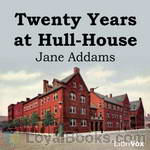 Twenty Years at Hull-House
Twenty Years at Hull-House
Jane Addams was the first American woman to be awarded the Nobel Peace Prize. In a long, complex career, she was a pioneer settlement worker and founder of Hull-House in Chicago, public philosopher (the first American woman in that role), author, and leader in woman suffrage and world peace. She was the most prominent woman of the Progressive Era and helped turn the nation to issues of concern to mothers, such as the needs of children, public health and world peace. She emphasized that women have a special responsibility to clean up their communities and make them better places to live, arguing they needed the vote to be effective... | |
By: Ezra Meeker (1830-1928) | |
|---|---|
 Ox-Team Days on the Oregon Trail
Ox-Team Days on the Oregon Trail
Ezra Meeker…was an early pioneer who traveled the Oregon Trail by ox cart as a young man. Beginning in his 70s, he worked tirelessly to memorialize the trail, repeatedly retracing the trip of his youth. This book is a memoir of those days. | |
By: Mary Chesnut | |
|---|---|
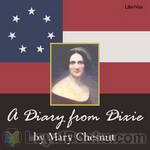 A Diary from Dixie
A Diary from Dixie
Mary Boykin Miller Chesnut, a well-educated South Carolina woman who was the wife of a Confederate general, kept extensive journals during the Civil War. Mrs. Chesnut moved in elite circles of Southern society and had a keen interest in politics. Her diary is both an important historic document and, due to her sharp wit and often irreverent attitude, a fascinating window into Southern society of the time. This recording is of the first published edition of the diary, compiled from Mrs. Chesnut's revisions of her original journals. | |
By: Edward Streeter (1891-1976) | |
|---|---|
 Dere Mable
Dere Mable
Bill is in training camp, preparing to go off to World War I. This book is a collection of love letters written to his sweetheart, Mable. The letters are humorous, mis-spelled, and have many stories of life in an army camp – all from Bill’s unique perspective. | |
By: Robert Falcon Scott (1868-1912) | |
|---|---|
 The Journals of Robert Falcon Scott
The Journals of Robert Falcon Scott
Capt. Robert F. Scott's bid to be the leader of the first expedition to reach the South Pole is one of the most famous journeys of all time. What started as a scientific expedition turned out to be an unwilling race against a team lead by R. Admunsen to reach the Pole. The Norwegian flag already stood at the end of the trail when Scott's party reached their target. All the five men of the Scott expedition who took part in the last march to the Pole perished on their way back to safety. Robert F. Scott kept a journal throughout the journey, all the way to the tragic end, documenting all aspects of the expedition... | |